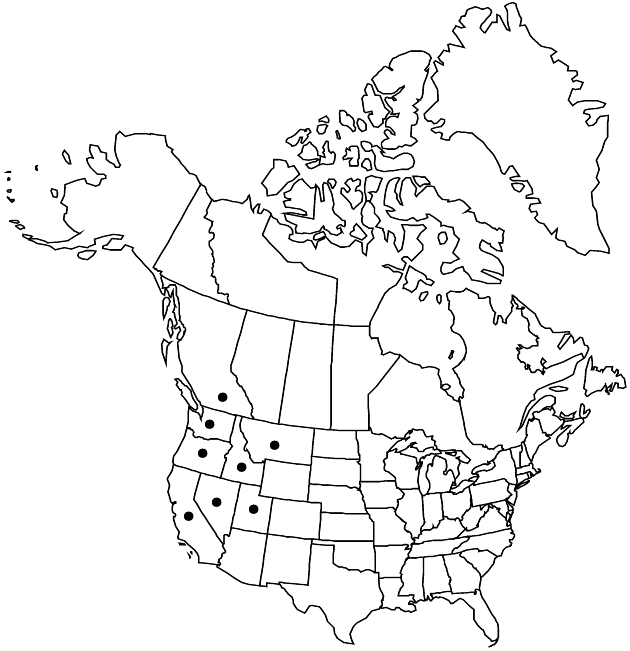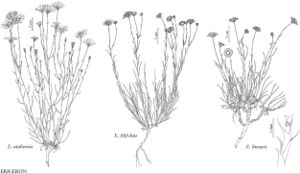Erigeron filifolius
Trans. Amer. Philos. Soc., n. s. 7: 308. 1840.
Perennials, 10–30(–50) cm; taprooted, caudices multicipital, often with relatively short and thin, stemlike, lignescent branches. Stems erect, sparsely to densely strigose (hairs loosely appressed to ascending, fine), densely white-strigose at least proximally, eglandular. Leaves basal (usually persistent, not clustered as rosettes) and cauline; basal blades linear to filiform, 10–80 × 0.5–2.5(–3.5) mm, cauline gradually or little reduced distally, margins entire, faces sparsely to moderately strigose, eglandular. Heads 1–5(–10+) from distal branches, tending to be in corymbiform arrays. Involucres 4–7 × 5–-18 mm. Phyllaries in (2–)3–4 series, loosely strigose to hirsute or nearly villous, densely to sparsely minutely glandular. Ray florets (15–)20–125; corollas usually blue, sometimes white, pink, or pale lavender, 3–13 mm, laminae coiling. Disc corollas 2.5–5.5 mm. Cypselae 1.4–1.8(–2) mm, 2-nerved, faces sparsely strigose to glabrate; pappi: outer of setae, inner of 20–30 bristles. 2n = 18.
Phenology: Flowering May–Aug.
Habitat: Dry, rocky or sandy soil, lava beds, bitterbrush, sagebrush, juniper, ponderosa pine
Elevation: 400–2400 m
Distribution

B.C., Calif., Idaho, Mont., Nev., Oreg., Utah, Wash.
Discussion
The densely white-strigose stem bases, linear-filiform leaves relatively unreduced distally, and relatively few heads with coiling, usually blue rays are distinctive for Erigeron filifolius. Proximal leaves are not clustered as a basal rosette; they are inserted on closely spaced nodes that are slightly more separated distally. Plants identified as var. robustior (with more ray florets, fewer heads, and thicker stems, centered in Oregon and Washington) intergrade with the typical form and apparently are separated arbitrarily.
Selected References
None.
